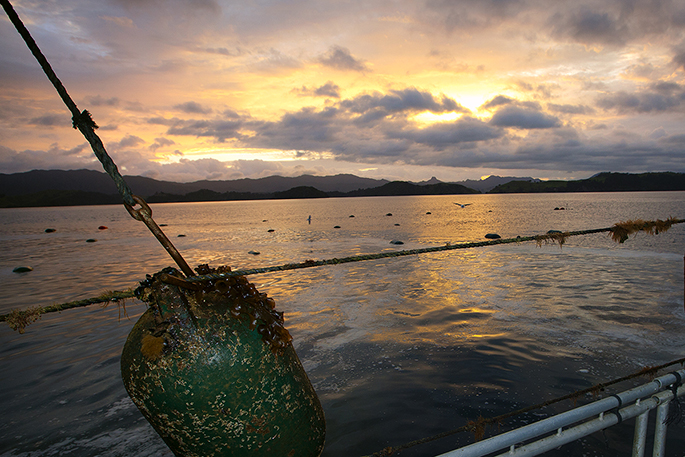A Tasman-based company has begun a one-year research trial aimed at reducing the number of mussel floats that get lost at sea each year.
Aquaculture float specialist SS Floats is partnering with the Ministry for Primary Industries to devise an improved float and attachment method for longline mussel farming.
MPI is contributing $72,500 towards the $145,000 project through Sustainable Food & Fibre Futures.
The new design must be able to withstand the unpredictability of open waters better than the existing floats.
"Mussel farming in New Zealand began in sheltered bays in the Marlborough Sounds, so the old design, which has been used for the past 40 years, worked pretty well," says Paul Smith, the lead designer for SS Floats.
"However, the industry's move to more exposed waters has driven our need to come up with a new design."
Currently made of plastic, mussel floats can occasionally come loose due to adverse weather or tidal conditions.
"Appropriate buoyancy is a critical element of longline mussel aquaculture and requires a delicate balance. Too much flotation and crops are shaken by wave energy at the surface; too little flotation and lines can sink. Both can result in crop loss."
Paul has been contemplating this issue for some time, so quickly had a prototype solution ready to test once funding was approved.
"We've already got trial floats in the water locally, which are working really well," he says. "We now need to test them in different parts of the country with more exposed waters."
This supports the government's Aquaculture Strategy objective to extend marine farming into the open ocean.
Ned Wells, general manager of the Marine Farming Association, which is supporting the research project, says floats that get loose are generally recovered.
"Despite that, it's an expensive exercise for companies to go round and collect them."
Data collected over the last 10 years shows between 500 and 1,500 floats are lost from Top of the South mussel farms each year, with an annual cost of at least $500,000.
"If this project is successful it will mean one less source of plastic in our marine environment," says Steve Penno, director of investment programmes at MPI.
"This could help the mussel industry with another step towards boosting its sustainability, while saving time and money."
The new floats will be tested in the open waters of Golden Bay, Tasman Bay, Pegasus Bay, and off the coast of Coromandel.



0 comments
Leave a Comment
You must be logged in to make a comment.